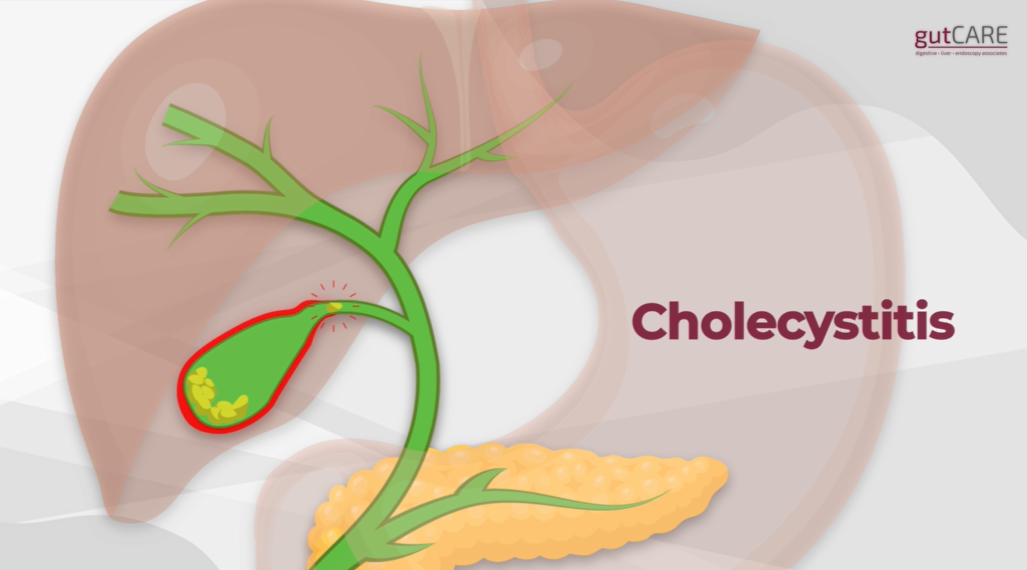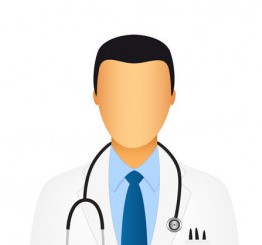Medical Care , Gastroenterology
‘’Gastric pain’’ can be a sign of gallstone disease
Did you know that what many people think of as ‘gastric pain’ may be a sign of gallstone disease instead? Many patients don’t realise that abdominal pain and vomiting are also symptoms of gallstone disease. Typically, 80% of the population with gallstones do not have any symptoms. However, gallstones can cause problems. This is what you need to know.

The gallbladder and gallstones in your body
Your gallbladder is located below your liver, in the shape of a pear. Its function is to store bile, a greenish-yellow fluid that is produced by your liver. Bile juice is used to break down fat in the small intestine. When there is an excess amount of bile produced, bile salts combine with cholesterol, and pigments to form gallstones. Gallstones can vary in size from a few millimetres to a few centimetres in size.
Common signs of gallstone disease
The most common sign of gallstone disease is a sudden onset of severe abdominal pain which lasts more than half an hour long. This is usually accompanied by nausea and vomiting. The pain may radiate to the right of the abdomen and even to the back. Your urine may turn darker in colour and the cornea or whites of the eye may appear yellowish (jaundice). Some patients may also develop fever or chills.
Possible complications of gallstones
While gallstones are mostly harmless, there are a few instances when gallstones can result in more serious consequences.
Scenario 1: Inflammation of the gallbladder (cholecystitis)
When your gallbladder contracts, it might force the gallstones against the gallbladder outlet and cause blockage. This may lead to gallbladder inflammation.
Scenario 2: Infection of the common bile duct (cholangitis)
If the stone manages to leave the gallbladder and migrate into the common bile duct, the gallstone can get trapped in the bile duct.
Scenario 3: Inflammation of the pancreas (pancreatitis)
The pancreatic duct joins the bile duct to form the common bile duct. If gallstones travel far along enough, they can cause obstruction to the pancreatic duct as well. This triggers an inflammation of the pancreas or pancreatitis.
Diagnosis of gallstones
If your doctor suspects that you have gallstones disease, he may refer you to a gastroenterologist – a doctor that specialises in digestive problems. The specialist may order an ultrasound or MRI scan to examine the gallbladder to confirm the diagnosis.
Treatment options for gallstones
There has not been any conclusive evidence that diet or medication can conclusively treat gallstones completely. For gallbladder inflammation or cholecystitis, the treatment is initiated with antibiotics. If the gallstones obstruct the common bile duct or pancreatic duct, the patient will need an endoscopy or ERCP to remove the gallstones. Patients who experience complications from gallstones should have their gallbladder removed in order to prevent future recurrence of the complications. While some patients may be concerned about impaired digestive function after gallbladder removal, most of our patients eat normally without any long term digestive issues. If you are experiencing abdominal pain that is recurrent or prolonged, it’s best to see a doctor check if the symptoms are related to gallstones.
Dr Chong Chern Hao is a Gastroenterologist at gutCARE digestive·liver·endoscopy associates. He has a clinical interest in liver disorders and digestive cancer screening. To find out more visit us at www.gutcare.com.sg
Doctors

Related Articles
Medical Care
Abdominal Gas, Bloating and Your Diet
Gutcare Digestive Liver Endoscopy Associates.
Read moreMedical Care
5 strategies to cope with cancer by CanHOPE
Parkway Cancer Centre’s non-for-profit cancer counselling and support service shares its suggestions for cancer patients
Read moreMedical Care
A new approach against severe asthma
A novel treatment for severe asthma is improving patients’ quality of life by significantly reducing asthma attacks
Read moreLatest Articles
Medical Care
Clinical Exercise Physiologist (CEP): The Emerging of Exercise is Medicine
How Exercising can be a Medicine
Read moreMedical Care
Reversing type 2 Diabetes: Embracing Hope and Determination
Experience the remarkable journey of Ash and his grandfather Atok as they conquer type 2 diabetes through unconventional methods, showcasing the power of love and determination over adversity.
Read moreMedical Care
Bladder Cancer: What You Need to Know
Empower yourself with our comprehensive guide to bladder cancer. Explore symptoms, diagnosis, treatments, and supportive resources to safeguard your health.
Read more